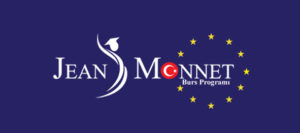
Technical Assistance for Implementation of Civil Society Dialogue and Civil Society Support Programmes (TR2015/DG/01/A5-01/001)
The overall aim of the project is to increase bilateral exchanges and cooperation between CSOs in Turkey and the EU at local, regional and national levels, to promote awareness raising initiatives on importance and benefits of membership of Turkey to the EU within Turkey and EU and on

Technical Assistance for Garment Training and Entrepreneurship Initiative (GATE for Women)
Women’s inequality in the labour sector has been an unsolved problem for generations. However, if women find the right support at the right time, it provides excellent results. Likewise, the overall aim of this project was to increase women’s employability and support women’s entrepreneurship by strengthening women’s vocational

Technical Assistance for Strengthening Social Dialogue, for Innovation and Change in Turkey
It can be said that the progression through an in-depth training programme and an understanding of the techniques associated are essential for a contemporary understanding of social dialogue concepts and their implementation. In this regard, the project aimed at social development and the enhancement of social cohesion within

Increasing Competitiveness of Middle Black Sea Region TR83
Turkey’s Middle Black Sea region was set up in 2009 and is now well established; the Middle Black Sea Region Development Agency (OKA) carries out activities to support the economic and social development of Amasya, Çorum, Samsun and Tokat provinces. The main objective of this project was to

Strengthening of an Integrated Strategic Approach to Increase the Efficiency and Productivity of IPA Funds during the Third Period (2021-2027)
This project’s main objective is to further increase and consolidate administrative capacity of the Turkish administration for more effective and efficient management and absorption of IPA funds, in addition to strengthen the capacity of NIPAC and other relevant institutions in the area of strategic planning and programming, proper

Technical Assistance for Jean Monnet Scholarship Programme
Turkey’s negotiations in pursuit of full membership in the European Union (EU) place significant responsibilities on all sections of Turkish society. This fact means that Turkey needs individuals from all parts of society who can closely follow and contribute to EU-related issues. In this context, the specific purpose

